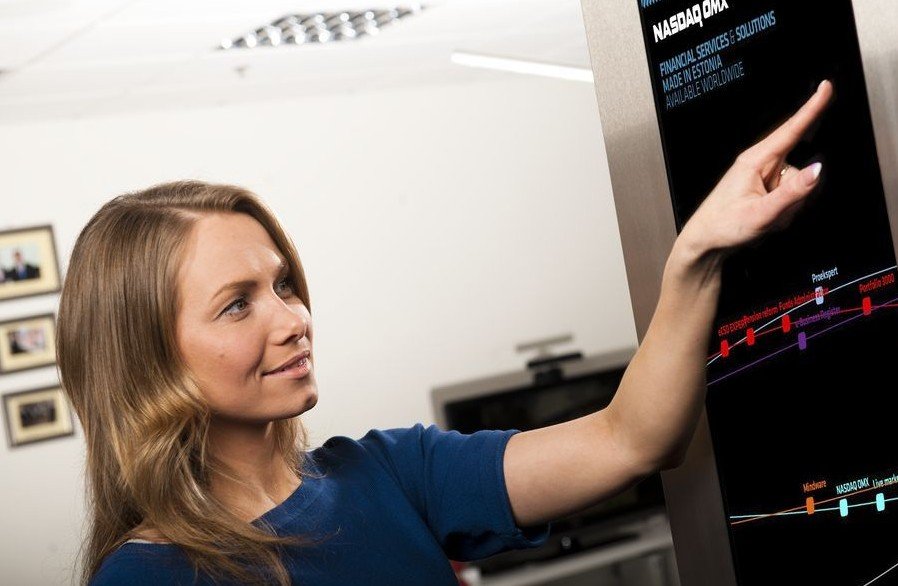There’s a saying that Southern Europeans are like peaches, whilst us Northern Europeans are like coconuts.
That is to say, that the more expressive Southern nations tend to produce people who are warm and welcoming, and soft on the outside – but with a core that is nonetheless difficult at times to penetrate; whilst us introvert Northerners tend to be more like coconuts, pretty tough to crack in the first place, but once you do, there’s no holding back. Whatever you think about the broader brush-stroke stereotyping, this analogy can certainly feel true if you hire or work alongside an Estonian. What do you need to know in advance to make it a match made in heaven?
1. Expect a capacity for language outdone only by C3PO
If you’re hiring an Estonian, the fact is that their English proficiency might well be better than yours. Even if you’re a native English speaker.
Estonians are pretty good at languages. So good, in fact, that Estonia ranks 8th in the global scale of English language proficiency, much higher than most of their local neighbours. But where it gets really fascinating is when you watch an Estonian switch effortlessly between languages, conversing equally happily in Estonian and English, but often also Russian, German or Swedish.
And when you finish off being impressed by this, try a little Estonian yourself, to really get a feel for your new colleague’s ability. Try saying something simple, like “jäääär” or “kuulilennuteetunneliluuk” (not only a tongue twister, but also a palindrome), and see if you’re not told to stop murdering the beautiful Estonian native language.
2. Don’t even think about cancelling lunch
Sandwich scoffed at the desk? Not in Estonia.
Lunch is an important meal, and must constitute something hot, consumed sitting down. Try to get away with a cold sandwich and a bottle of Coke at the computer at your peril. Better to arrange to introduce your new Estonian team mate to all the local eateries, find some great lunch special deals, and settle into a new – and infinitely more productive – routine of actually leaving the office once a day.
While you’re at it though, expect your attire to be scrutinised. Leaving the office is compulsory, but so is being properly wrapped up. As kids, Estonians might be stopped in the street by a passer by and instructed to fasten their coat, or pull their hat over their ears. And in the often inclement weather, you can see why. It is not unusual, though, to be chastised by Estonian colleagues if you attempt to even quickly nip out of the office without the appropriate combination of outerwear for the weather.
3. No reaction does not (necessarily) equal a bad reaction
My day-job in Estonia occasionally requires public speaking, which is something of a daunting prospect in a country of coconuts. The reality is that a smile, nod or even abject silence in response to the dreaded, ‘Any Questions?” slide at the end of a presentation, is normal. And doesn’t (necessarily) mean you’ve performed terribly and should be waiting for your dismissal notice.
Don’t be fooled by this, though. The relative calm can lead you into a false sense of security with your new Estonian colleague. Be assured, when she has something to say, she will say it. Bluntly, clearly and with no messing. Get used to being asked the question, “What is the point you are trying to make?” if you have a tendency to waffle. It is not rude; it just moves the conversation along, and helps everyone keep to their impressive punctuality.
4. Turn up on time
A ten o’clock meeting will start at ten. Not a moment earlier, and not a moment later. Punctuality is a definite Estonian ‘thing’.
If you have grown up in a country where the busses all run to absolute clockwork-precise time, then it is understandable that this respect for punctuality will become part of the fibre of the being. Expect your Estonian colleague to be both very precise about timings, but with an inbuilt sense of punctuality. Not the anxious turn-up-half-an-hour-early-just-in-case type of punctuality, just an ability to be in the right place at the right time without seeming to make any effort towards that end.
5. Give credit where credit is due
A final observation and a suggestion to make your new hire feel welcome in your team:
Whatever your new Estonian colleague does or delivers, don’t forget to say, “Thank you” and “Well done!” And watch his reaction.
Words are seldom wasted in Estonia, and one of the impacts of this is that praise in the office can sometimes feel like it is in short supply. Make your colleague’s day with a pat on the back, and watch that coconut crack.
I
Cover photo is illustrative (courtesy of EAS). This article was first published by Jobbatical, a unique matchmaking platform between employees looking to take a working sabbatical and employers looking for a shot of creative talent for a short-term gig.


Well… as long as I don’t have to eat Estonian cuisine!!..
Do you mean traditional food which is eaten on special occasions (Christmas, Birthdays, Independence day etc. which depends on the family traditions as well) or the actual food, what most of the world eats, too? Just saying that big part of Estonian cuisene comes from Sweden, Russia, Poland, Germany and maybe some other country which I’ve forgotten to mention…
Well… Estonian food isn’t exactly top notch is it?, sort of fish heads in aspic or offal pie!!, I am joking a little of course, but I would say that Estonia should invent some sort of new international signature dish, now that would be cool!!….
An aboriginal person who acts like a white person-dark skin colour and acting like a English people who occupied Australia, is also called a coconut.